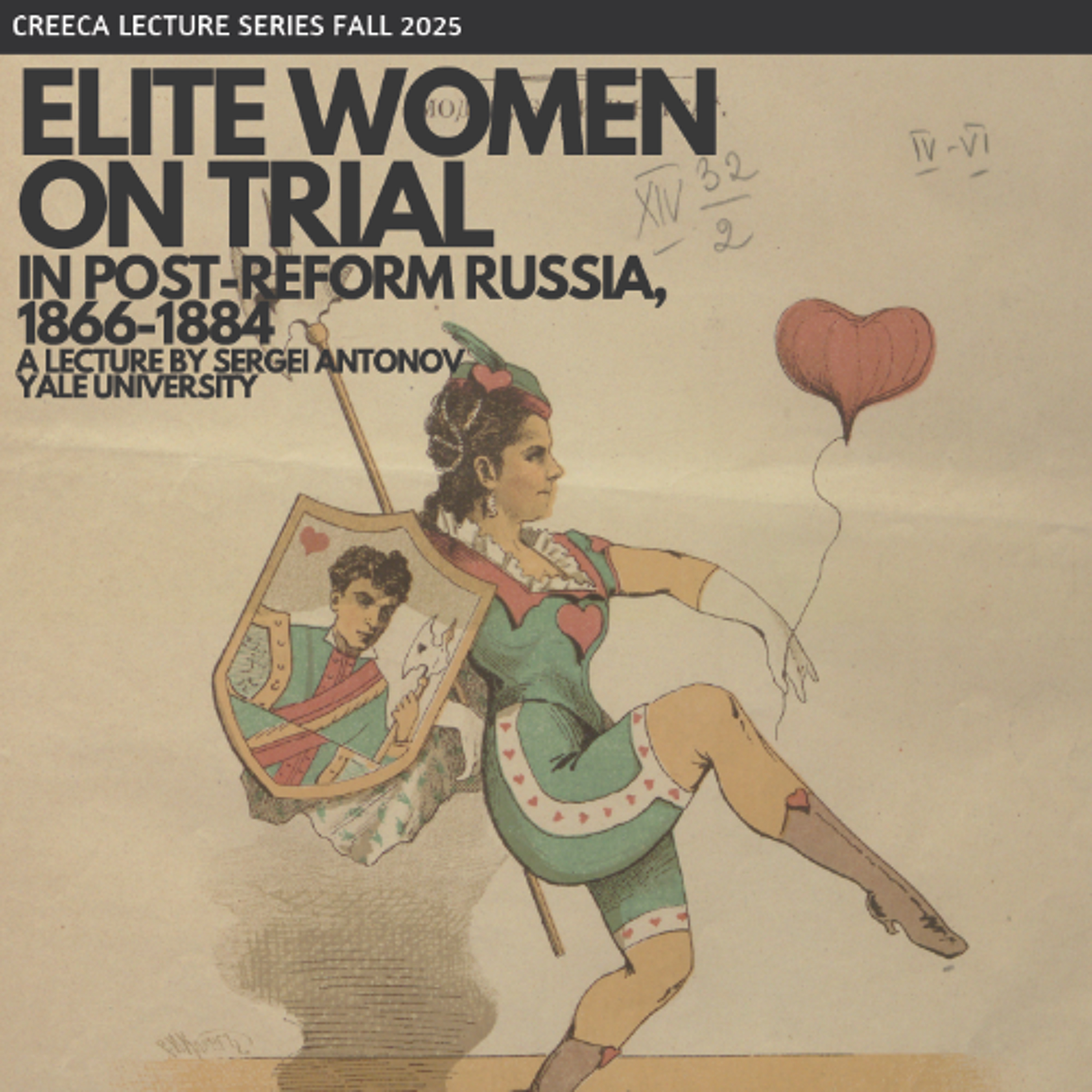

Lecture by Sergei Antonov (Yale University). Russia’s landmark judicial reform of 1864 introduced the public jury trial and turned the courtroom into a protected forum for social and sometimes even political debates. This lecture will explore some of the most prominent criminal cases of the post-reform era that involved elite women accused of murder, forgery, and embezzlement. For the only time in Russian history, late imperial criminal trials exposed the hidden lives of Russia’s elites to pub...
Lecture by Sergei Antonov (Yale University). Russia’s landmark judicial reform of 1864 introduced the public jury trial and turned the courtroom into a protected forum for social and sometimes even political debates. This lecture will explore some of the most prominent criminal cases of the post-reform era that involved elite women accused of murder, forgery, and embezzlement. For the only time in Russian history, late imperial criminal trials exposed the hidden lives of Russia’s elites to public scrutiny and discussion, framing many key “questions” of the age, such as the limits of permissible violence, bourgeois privacy and autonomy, exercise of personal power, and profit-seeking. Also for the only time in Russia’s history, powerful persons could reliably expect to go on trial for major crimes, while also expecting that trial to be fundamentally fair. But the effects of this panoptic gaze were complex and ambiguous, and the narratives produced during the trials were unintentionally ambivalent not only about those being prosecuted, but also about the new governing regime itself.
View more
Comments (3)
More Episodes
All Episodes>>You may also like
Create Your Podcast In Minutes
- Full-featured podcast site
- Unlimited storage and bandwidth
- Comprehensive podcast stats
- Distribute to Apple Podcasts, Spotify, and more
- Make money with your podcast
It is Free












